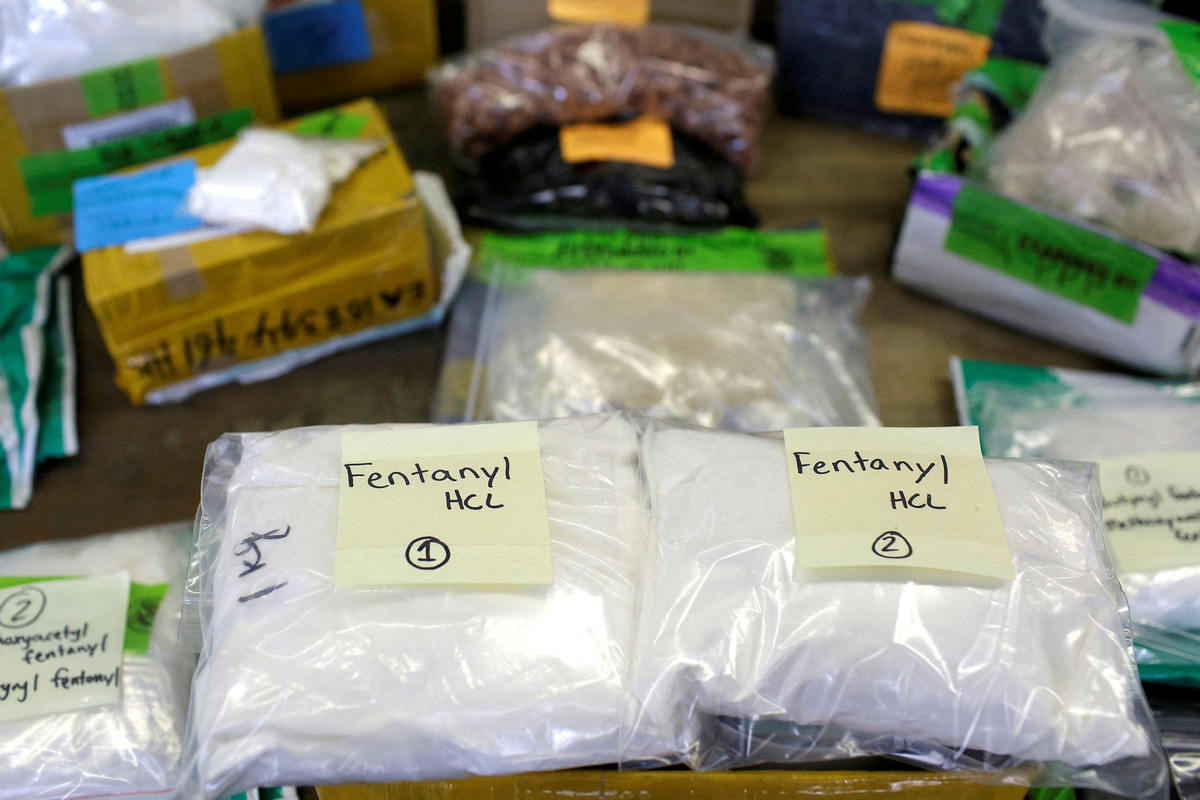
Cooperation between the United States and China on restricting fentanyl substances has yielded tangible benefits, highlighting the potential for pragmatic diplomacy between major countries amid complex geopolitical landscapes, according to recent research from the Peterson Institute for International Economics.
The findings, discussed during an event hosted by PIIE in late May, suggest that China's move to strictly place the entire category of fentanyl-related substances in a controlled regulatory list as early as in May 2019 was associated with a roughly 25 percent decrease in overdose fatalities over a limited period in the United States.
READ MORE: Steps against fentanyl-related tariffs to stay
The initiative "reduced overdoses by roughly 25 percent over a limited period of time", said Marcus Noland, PIIE's executive vice-president and director of studies. He said this reduction translated to "about a thousand people" whose lives were saved during the three-to-five-month window the effect was observed.
The findings are in line with an International Narcotics Control Strategy Report, which was released by the US State Department in March 2022, that says almost no fentanyl or its analogs have been detected entering the United States from China since 2019, when Beijing further tightened its control of fentanyl and its precursors after leaders of the two countries agreed to strengthen anti-narcotics cooperation in the previous year.
In that drive, China enumerated all fentanyl-related medications in the List of Controlled Narcotic Drugs and exercised strict control in terms of their manufacturing, sale, use, and export.
However, as Washington has failed to take adequate steps to effectively curb its domestic illicit use of fentanyl, the fentanyl problem remains serious in the US, said Yuan Sha, an associate research fellow at the Department for American Studies of the China Institute of International Studies, in an article published at online journal China-US Focus.
The positive impact was not sustained also because fentanyl production and trade were rerouted, for instance, through Mexico, Noland added, underscoring the adaptability of illicit drug networks.
For China, although it has strengthened control of exports of relevant substances, "the complex nature of the fentanyl supply chain makes drug control efforts difficult", said Yuan. "Fentanyl precursors have dual uses (both as raw materials for making legal medicines and illicit drugs), and there is no workable plan yet on how to combat trafficking of illegal fentanyl precursor chemicals while avoiding damaging the legitimate global fentanyl trade."
The US, however, has accused China of being the major force causing its domestic fentanyl problem and slapped high tariffs on all imported Chinese goods, regardless of China's positive steps in the strict regulation of fentanyl substances.
Demand-driven crisis
"The blame game proved to be misplaced and even counterproductive. It obscures the fact that the US fentanyl problem is primarily a demand-driven crisis," said Yuan.
Analysts said the fact that the US is the only country in the world where fentanyl has become an entrenched public health problem indicates that it's mainly a domestic snag.
PIIE scholars called for more bilateral and even multilateral cooperation to help ease the problem.
Julieta Contreras, PIIE's lead statistician and a co-author, said that the research shows a strong correlation between the drop in deaths from overdose and fentanyl to concrete cooperation efforts and actions, "which was in this case China adding all fentanyl-related substances and additional precursors to their control substances lists".
ALSO READ: China urges US to stop shifting blame over its fentanyl crisis
This year, China offered to schedule two additional fentanyl precursor chemicals, 4-piperidone and 1-boc-4-piperidone, aligning with 2024 UN Commission on Narcotic Drugs obligations.
Noland pointed out the evolving nature of the supply chain. "As China becomes more restrictive in the export of precursor chemicals, demand for those chemicals is now shifting to India," he said. "So eventually if the crisis doesn't burn itself out fast enough, India will get pulled into this in a significant way. And so again, the diplomacy is going to have to be multilateral."
Cooperation with Mexico, Noland added, is also increasingly vital, emphasizing diplomatic engagement over military intervention.
Contact the writer at yifanxu@chinadailyusa.com


